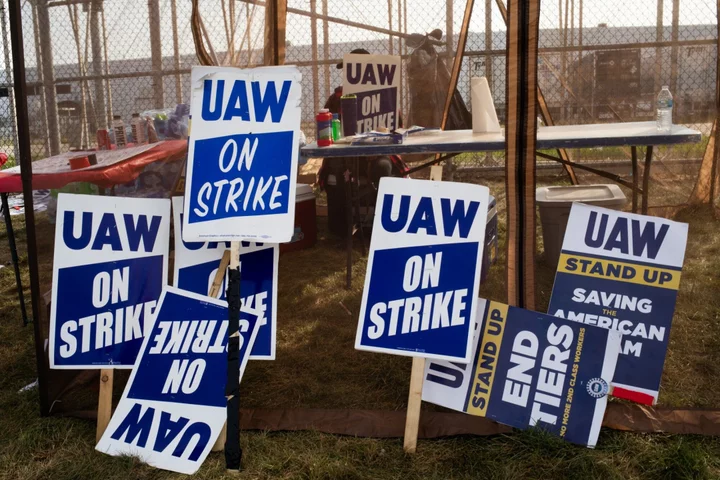Hong Kong policymakers are preparing a proposal to allow stock trading on days with extreme weather, doing away with a long-held tradition in the Asian financial hub, according to people familiar with the matter.
A working group from the Hong Kong’s stock exchange, the city’s market regulator and central bank is drafting a plan to allow trading as normal during typhoons and rainstorms, following up on a government initiative announced in the budget in February.
Among options that will be offered to ease concerns is a choice for smaller brokers to delay settlement and delivery even as trading is kept open, said the people who asked not be named discussing a private matter.
While risks are perceived as minimal, the plan is to have bourse operator Hong Kong Exchanges & Clearing Ltd. underwrite the risk involved with support from the Securities and Futures Commission and the Hong Kong Monetary Authority, the people said.
The final shape of the proposal is still under discussion and may change ahead of the forthcoming public consultation, the people said.
Hong Kong has been a rare exception among the world’s financial hubs to have a standing rule that suspends trading, sometimes with just a one- or two-hour notice, during extreme weather. Such halts are seen as increasingly antiquated given the recent adjustments to remote working amid the pandemic. They are also likely to be increasingly inconvenient, as extreme weather events linked to climate change grow more common.
Rival hub Singapore has never halted trading at its stock exchange due to weather-related events.
“This evaluation is at an early stage – and wherever we get to will require the collaboration from all our stakeholders and markets participants, led by the Hong Kong Government and regulators,” a spokesperson for the exchange said in a statement.” “Staff and customer safety will continue to be an important factor in our considerations. We will provide further updates to the market, as needed, in due course.”
A spokesman for the SFC said the regulator “believes that the initiative to enable severe weather trading is beneficial to Hong Kong as a whole” and that HKEX is evaluating the arrangements.
Work Culture
HKEX Chief Executive Officer Nicolas Aguzin raised the idea soon after he assumed office in 2021, suggesting to draw from the the work-from-home experience during Covid to keep markets open.
Hong Kong is typically affected by about six typhoons annually, usually from June to October, although only a fraction of those result in market or school closures. Last year storms caused trading halts in November and August. The bourse had daily average trading of HK$125 billion in 2022.
A move to keep trading open will likely affect smaller local firms, who struggle in maintaining trading, settlement and delivery in adverse situations. It may also clash with local working culture, where a day-off during typhoons or rainstorms is widely expected. Costs for labor insurance coverage could be affected as well.
The city’s 521 smaller brokerages currently only handle less than 5% of the trading on the exchange.









